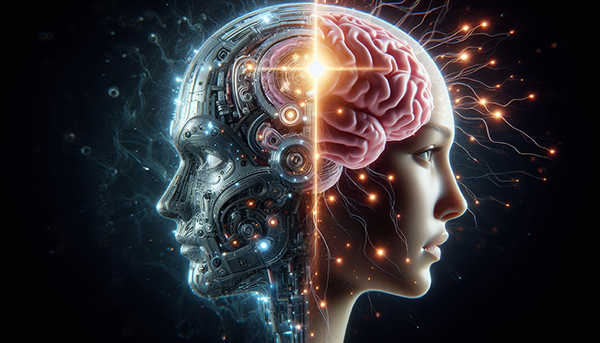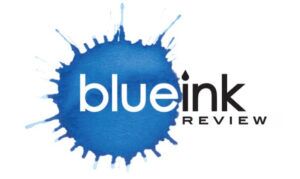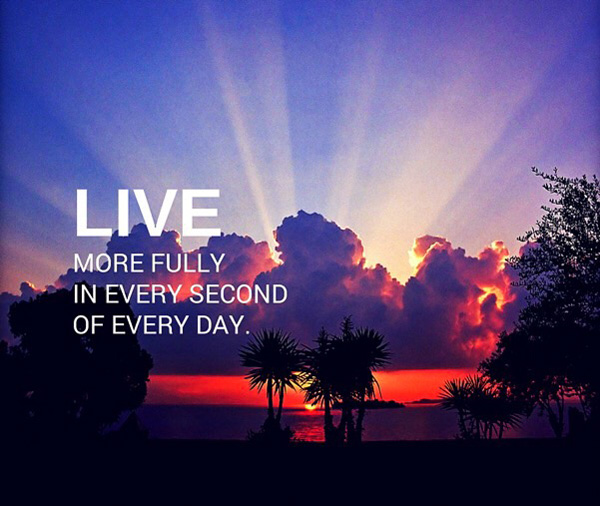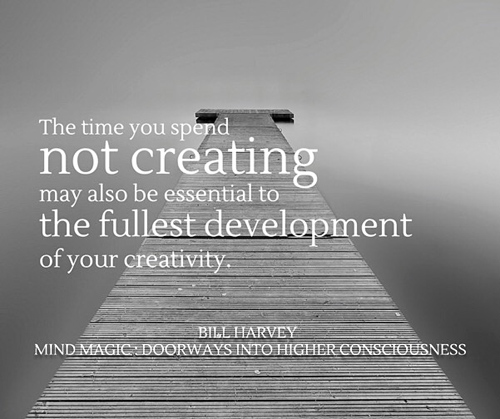Powerful Mind Part 39
Welcome to this week’s Bill Harvey Blog.
Created December 8, 2023. Updated April 4, 2025
Read Powerful Mind 38 | See all 12 Powerful Mind Keys

No computer system before the current Large Language Models (LLMs) has been able to fool humans into thinking that the computer is human or the intellectual equal – which is the Turing test, proposed by one of the pioneers of modern computers, Alan Turing, in March 1946. What is amazing about the LLMs is how human their texts sound.
What is even more amazing is that all they are doing is a version of autocompletes – when your computer or smartphone fills in the next word or words you are going to key in. GPT4 and the other LLMs are gigantic versions of the same algorithm. The vast amount of training data is what makes them sound like us and be right so much of the time.
Unbeknownst to us, we have always had a similar function in our own brains. The reason it remained unknown to us for so long is that it passed the Turing test. We took it as our own words to ourself.
This function predicts what we will say next, based on what we have said in the past (which are the training data), and on what we just said to ourselves a moment ago (which is the prompt to be autocompleted).
On occasion, the robot (as I call the inner biological AI) might escalate what you just said to yourself (the prompt), using terms you had used in the past (training data) in association with that word you just used. “Escalate” means taking your prompt and making a more extreme statement as a follow-up. In this way, the inner AI may contribute to our recognized collective leanings into extremism throughout recorded history and never more so than today.
The problem is we take all of our thoughts at equal value. The ones we ourselves say to ourselves, and to the ones that are predictions by our robot. We didn’t know about this robot thing, so we presumed that any thought in our mind was propelled solely by our own free will. However, we find this to not be the case. There is another word source which accesses memory systems and – like today’s LLM chatbots – predicts/suggests what to say next.
Why is there such a system? Apparently pro-survival, it reminds the self how to promptly respond to incoming signals of each specific type. However, it will tend to self-past-consistency and so it will potentially underestimate where the self has evolved to at the current moment.
In Emergency Oversimplification Procedure (EOP), otherwise known as the default network, these snuck-in inputs will be taken as the self’s own.
In Observer state, otherwise known as the executive control network, the self senses that it is now going off a bridge too far and pulls itself back.
However, even in Observer state, for the past few millennia we have not known that the human brain has these predictive abilities, and they are right now being discovered by science. Using introspection, I discovered the robot and wrote about it in my 1976 book Mind Magic.
From my own direct experience, I link the robot with Freud’s concept of the Ego. In Civilization and its Discontents he writes that the ego first arises when the baby feels needy and frustrated. It acts as the self, but it is actually a self-protective layer of mind on top of the id, the original self. In childhood I was able to understand my own actions through this lens of distinguishing the different voices in my mind.
Science is now confirming that the robot, as I wrote about it in Mind Magic, is a real thing, not just a metaphor. It’s as if a cosmic chunnel is being built from two ends, science and introspection, and they are actually connecting.
The verification for these psychotechnologies – the 12 Keys among others – by science is coming at just the right time. The upcoming generations feel handed a raw deal and fearful about their future, and they spend most of their time in EOP like the majority of us, ill-equipped for the likely challenges. Psychotechnology can achieve maturity of thought processes relatively quickly.
When Observer state is achieved it enables objective formal operational and systems thinking. One starts from understood and believed-in goals, then proceeds ethically and thoughtfully to achieve those goals. Each individual in this converted state is on a Mission with a known purpose. Having a Mission makes the individual less willing to give in to useless inner negativity and more self-disciplined about taking prompt but unhurried action aimed at carrying out the Mission.
The individual achieves meaning without the same constant dependency on media diversions. Moving toward of a future of one’s own shaping, life is exciting enough on its own. In Observer state, each challenge is a learning experience on the way to the goal.
Further psychotechnology balances this drive with resilient nonattachment to outcomes. Yerkes and Dodson proved that optimal arousal causes superior performance vs. maximal arousal. Czikszentmihalyi proved that there is a state above Observer state which he famously called Flow state. Yale’s Neuroscience Master Chun notes that the random chatter between lobes disappears in Flow state.
Spiritual psychotechnology opens up the individual to the possibility of cosmic connection, and how to recognize and work with it.
Worry and Fix
Two little words. And yet a philosophy can be built on them.
A 50,000-foot view of what goes on in our minds is a mix of these two things. We’re always either worrying or fixing.
A great many people worry almost constantly. This appears to leave them little time for fixing.
A few of us have learned to minimize time spent worrying and maximize time spent fixing.
The two strategies are poles apart in terms of success rates. And inversely poles apart in terms of popular adoption.
But why would people choose to waste time worrying when they could be fixing?
People generally do not believe they have the power to make a difference in their own lives, let alone to change the world. They feel swept along by forces much stronger than themselves, some coming from the outside and some coming from the inside.
The traitorous thoughts coming from the inside are the ego, the aspect of self which resists community mindmeld; it is always in a cold war against the others perceived to be separate beings, essentially competitors, rivals. Everyone else is the potential rival.
Everyone else is also the threat vector coming at the ego from the outside. Inside and outside sources appear to agree on the dangerous nature of the others. Everyone else.
In higher states of consciousness – specifically Observer state and Flow state – these paranoid delusional biases are identified instantly by a person. In Observer state one is conscious of one’s own judgment swings and even fine-tuning adjustments taking place from moment to moment.
In the higher states, there is no worry because every challenge is accepted with valor and all time is spent on fixing, building, creating. Worries streak in, and last only fleeting minutes, while the focused mind dissects them, and establishes new rules of engagement (fixing).
The present environment is geared toward producing hyper-over-stimulation/distraction. This is the result of Acceleritis over the past six millennia. We became stimulation junkies and invented technodrugs to feed that addiction.
At one time not so very long ago, in the West, we felt very confident and competent. In the East and South, where most of current growth has come from, there was great hope.
Now uncontrolled thoughts and feelings have stampeded the herd. This is all utterly unnecessary.
We have the skills and resources to fix everything, even at the advanced state of ruin we have already made of the planet and its species.
But not without working together.
If we continue to wallow in delusional hate fantasies while Rome burns, well. You know how that ends.
Can we all please wake up from the nonsense and get to cooperating to fix the mess we made?
Further methods of attaining inner clarity (Key #10) in Part 40.
See all 12 Powerful Mind Keys
My best to all,
![]()






 Blending spiritual philosophy, alternate history, pre-historic adventure, and brisk life-after-life storytelling, The Great Being is above all a beginning. First comes creation itself, which gets started with the knockout opening line (“The Nothingness felt surprise upon realizing itself.”), … This is the fourth entry published but the first chronological chapter. It shares the swift pacing, spiritual seeking, twisty plotting, and sharply human dialogue of the earlier books, though its focus feels tighter…
Blending spiritual philosophy, alternate history, pre-historic adventure, and brisk life-after-life storytelling, The Great Being is above all a beginning. First comes creation itself, which gets started with the knockout opening line (“The Nothingness felt surprise upon realizing itself.”), … This is the fourth entry published but the first chronological chapter. It shares the swift pacing, spiritual seeking, twisty plotting, and sharply human dialogue of the earlier books, though its focus feels tighter…  A real standout…The radically inviting nature of this story brings with it the opportunity to view life and God in an entirely different light…Designed to awaken and introduce new interpretations of spirituality and life meaning. As readers who may not have expected such nuances come to absorb the greater gift of The Great Being‘s message, they will find the radically inviting nature of this story brings with it the opportunity to view life and God in an entirely different light … The story evolves with a reinterpretation of myths, events, and concepts that doesn’t just invite, but demands discussion and insights on the parts of all kinds of spiritual thinkers as the story evolves a unique and compelling flavor of discovery … One of Bill Harvey’s great talents lies not just in his storytelling ability, but his focus on translating life events and history with new interpretations … Readers interested in transformative reading… will find The Great Being‘s message to be one of hope, discovery, and new ways of viewing the universe [and] will find The Great Being a standout.
A real standout…The radically inviting nature of this story brings with it the opportunity to view life and God in an entirely different light…Designed to awaken and introduce new interpretations of spirituality and life meaning. As readers who may not have expected such nuances come to absorb the greater gift of The Great Being‘s message, they will find the radically inviting nature of this story brings with it the opportunity to view life and God in an entirely different light … The story evolves with a reinterpretation of myths, events, and concepts that doesn’t just invite, but demands discussion and insights on the parts of all kinds of spiritual thinkers as the story evolves a unique and compelling flavor of discovery … One of Bill Harvey’s great talents lies not just in his storytelling ability, but his focus on translating life events and history with new interpretations … Readers interested in transformative reading… will find The Great Being‘s message to be one of hope, discovery, and new ways of viewing the universe [and] will find The Great Being a standout. 
